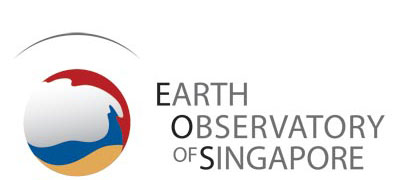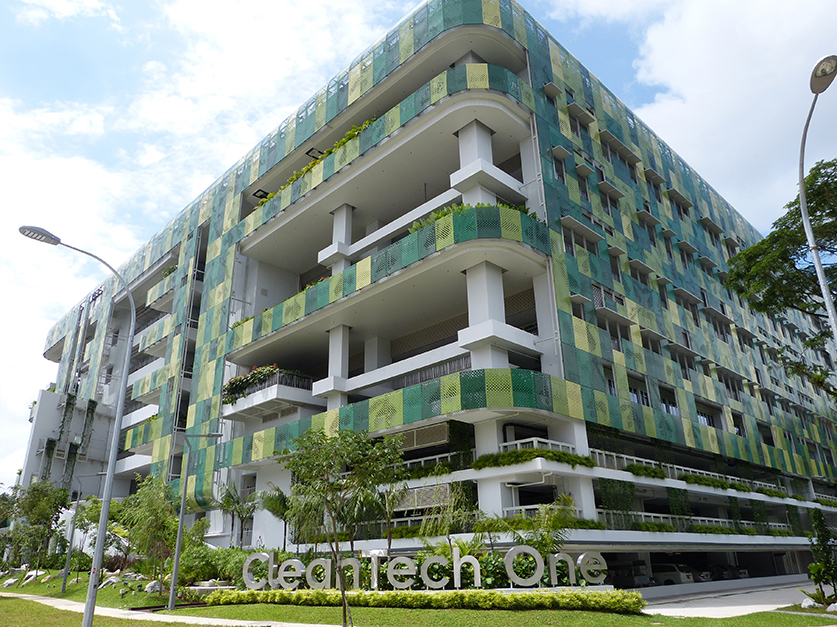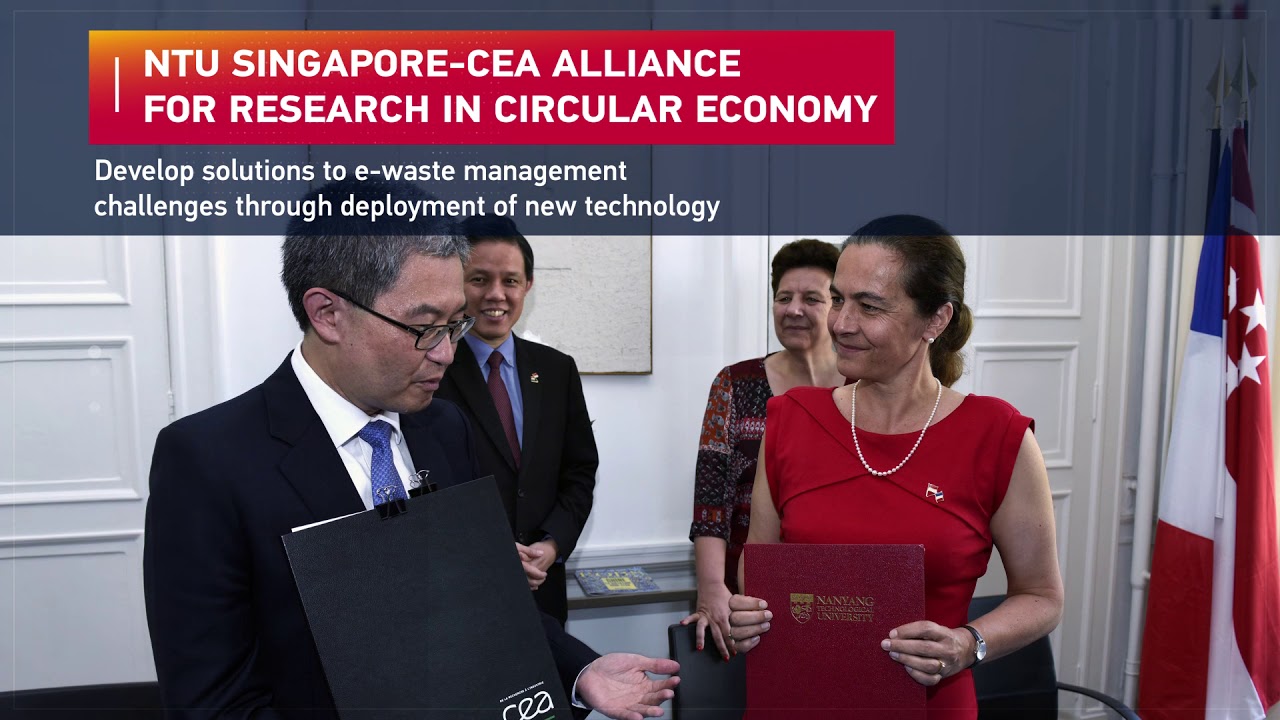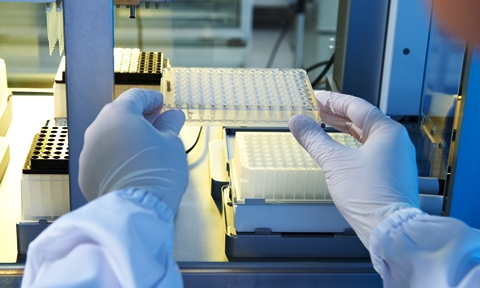Discover the innovations undergoing research, development and testing at NTU research centres
NTU has several research centres focusing on environmental sustainability. This includes the Earth Observatory of Singapore (EOS), Energy Research Institute @NTU (ERI@N), Nanyang Environment & Water Research Institute (NEWRI), Singapore Centre for Environmental Life Sciences Engineering (SCELSE), Singapore CEA Alliance for Research in Circular Economy (SCARCE), Future Ready Food Safety Hub (FRESH@NTU), Institute for Digital Molecular Analytics & Science (IDMxS), NTU Integrated Medical, Biological & Environmental Life Sciences (NIMBELS) and a Sustainable Learning Lab located in the National Institute of Education.
Earth Observatory of Singapore (EOS)
The Earth Observatory of Singapore conducts fundamental research on earthquakes, volcanic eruptions, tsunamis and climate change in and around Southeast Asia, toward safer and more sustainable societies. EOS aims to help build the social compact for Singapore to tackle the challenges of climate change and sustainability, which is central to the major Green Plan policy priority of the Government.
The Institute integrates research across NTU in the context of the energy challenge, and then helps translate outcomes into industry and practice. ERI@N's research focuses on a host of
Interdisciplinary Research Programmes, Flagship Programmes, Consortium Platform and an Accelerator Programme that covers the energy value chain from generation to innovative end-use solutions, motivated by industrialisation and deployment.
Singapore CEA Alliance for Research in Circular Economy (SCARCE)
A joint laboratory between NTU Singapore and the French Alternative
Energies and Atomic Energy Commission (CEA). The joint venture will synergize the expertise of researchers from Singapore and France to address the recycling and recovery of materials from electrical and electronic waste (e-waste), such as discarded lithium-ion
batteries and printed circuit boards. In addition, the laboratory will explore advanced separation and extraction processes of e-waste which are less energy intensive and toxic as compared to current practices. The overall aim is to develop innovative
and energy efficient solutions to recycle and recover e-waste.
Singapore Centre for Environmental Life Sciences Engineering (SCELSE)
Hosted by NTU in partnership with NUS, SCELSE is linking new insights from the life sciences with expertise from the emerging technologies in engineering and natural sciences to understand, harness and control microbial biofilm communities and microbiomes. The exploratory power available to SCELSE researchers, from laboratory-scale to full-scale environmental, medical and engineered systems, combined with an unrivalled level of interdisciplinary expertise places SCELSE in a unique position, to deliver a comprehensive understanding of all aspects of a microbial system.

Future Ready Food Safety Hub (FRESH@NTU)
Set up as a national research platform under the Singapore Food Story R&D agenda, the Future Ready Food Safety Hub (FRESH) provides expert counsel and food safety research services to public and private organisations working to bring novel foods to Singapore. Leveraging our expertise in food toxicology and risk assessment science we help ensure that foods, even those without prior history of safe consumption, can be safely eaten.

Institute for Digital Molecular Analytics and Science (IDMxS)
The Institute for Digital Molecular Analytics and Science (IDMxS), is a Research Centre of Excellence (RCE) at NTU. IDMxS is an organised effort focused on interfacing the biological and living world with the world of information technology and data science.

NTU Integrated Medical, Biological & Environmental Life Sciences (NIMBELS)
NTU Integrated Medical, Biological & Environmental Life Sciences (NIMBELS) is a university-level strategic venture that brings various NTU entities together and collaborate on initiatives to promote synergistic and interdisciplinary partnerships that are critical to addressing many of today’s health and environmental challenges.

Sustainability Learning Lab (SLL) at NIE
The Sustainability Learning Lab (SLL) is a formal center of excellence situated within the National Institute of Education, Nanyang Technological University. Set against a backdrop of rapid climate change, widespread ecological degradation, and uneven development, sustainability is one of humanity’s grand challenges. The inception of SLL is driven by the collective aspiration of our research and teaching community to cultivate sustainability knowledge as well as foster adaptable and inclusive shared futures.
Our Industry Partners
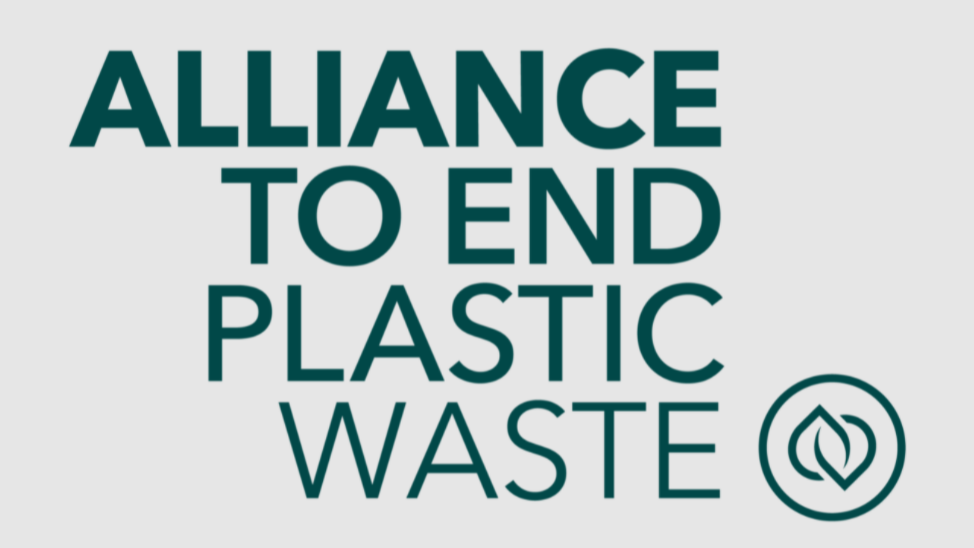







Research News
Staying ahead in a changing world
 Dr Tedros Adhanom Ghebreyesus, Director-General of WHO, and NTU Deputy President and Provost Prof Ling San at the opening of WHO’s first Collaborating Centre for Digital Health and Health Education. Credit: NTU.
Dr Tedros Adhanom Ghebreyesus, Director-General of WHO, and NTU Deputy President and Provost Prof Ling San at the opening of WHO’s first Collaborating Centre for Digital Health and Health Education. Credit: NTU.
Towards its goal of digitalising healthcare and supporting the training of healthcare professionals worldwide, the World Health Organisation (WHO) has designated the Centre for Population Health Sciences (CePHaS), a centre in NTU’s Lee Kong Chian School of Medicine, as its first Collaborating Centre for Digital Health and Health Education.
Preceded by five years of collaborative work with the WHO, the initial designation as collaborating centre will last four years. During this term, Assoc Prof Josip Car, Director of CePHaS and the WHO Collaborating Centre, will lead a team that will work with WHO and Singapore’s Ministry of Health on the use of digital health tools for the education and training of the health workforce.
——————
NTU’s Institute of Catastrophe Risk Management (ICRM) and the ASEAN Secretariat have jointly launched a three-year disaster risk management and risk financing plan to address rising economic costs due to natural catastrophes in Southeast Asia. This is under the ASEAN Disaster Risk Financing and Insurance Phase 2 (ADRFI-2) programme, which supports ASEAN’s efforts to strengthen the disaster risk resilience of the region. The plan of action as developed by ICRM and ASEAN Secretariat aims to equip member states with risk management and transfer capabilities, which will enable them to overcome financial burdens caused by disasters.
ICRM will lead two of the plan’s strategic areas: risk assessment and risk advisory. ICRM’s data scientists will develop a high-resolution natural catastrophe database for holistic risk assessments, analyse the insurance and reinsurance needs of ASEAN countries, and design innovative risk-transfer tools and cost-effective disaster risk financing strategies.
——————
If we are to realise a future of autonomous vehicles and artificial intelligence-enhanced smart systems and applications related to the Internet of Things, we will need access to high-performance memory devices.
In a S$120 million (US$88 million) tie-up with semiconductor manufacturer GlobalFoundries Singapore, NTU will advance the next-generation of non-volatile memory technology. Supported by Singapore’s Industry Alignment Fund-Industry Collaboration Projects scheme, the NTU-GF Singapore Research Partnership—one of Singapore’s largest corporate research partnerships with academia to date—leverages GlobalFoundries Singapore’s advanced silicon transistor technology.
As part of the collaboration, NTU’s Prof Lew Wen Siang will lead a joint project with GlobalFoundries called “Advanced ReRAM technology for embedded systems”. The project aims to establish a new class of mainstream non-volatile memory technology called resistive switching random-access memory (ReRAM). Commonly used in on-chip microcontrollers and embedded systems, ReRAM offers many advantages over conventional memory technology, including increased durability, higher speed and lower power consumption.
The article appeared first in NTU’s research & innovation magazine Pushing Frontiers (issue #16, February 2020).
- Biological Sciences
- Collaborations
- Earth Sciences & Engineering
- Electrical and Electronic Engineering
- Engineering & Technology
- Health Sciences & Medicine
- Learning & Education
- Microelectronics & Applications
- Natural Sciences
- Research/Studies on Asia
- Security Studies & Policy Issues
- Social Sciences
- University News
- Asian cultures
- Funding
- Medical humanities
- Policy-making
- Research features
- Sustainability



